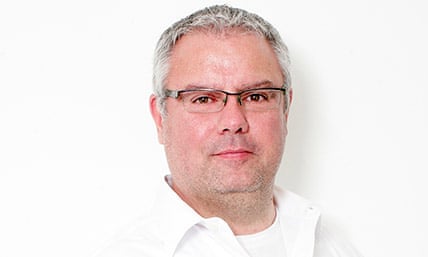Each week, a new guest hosts the @IndigenousX twitter account to discuss topics of interest as Aboriginal and/or Torres Strait Islander people. In partnership with IndigenousX, we're inviting its weekly host to tell us about who they are, what issues they're passionate about, and what they have in store for us during their upcoming week.
Tell us about yourself. Who are you, where are you from, what do you do?
I am Wiradjuri, and my day job is CEO of the National Centre of Indigenous Excellence (NCIE) based in Redfern, Sydney. We work in collaboration with other organisations to create positive social change and sustainable life-changing programs focusing on excellence and innovation. We are cultivating Aboriginal and Torres Strait Islanders' talent, enrich their potential and create opportunities.
What do you plan to talk about on @IndigenousX this week?
I wish I had the time to post on @IndigenousX every day of the year, because there are so many untold stories of resilience, contribution and innovation generated by our people and communities that the vast majority of Australians never hear about. Those stories illustrate the daily lived experience of our young people, who overcome racism and discrimination to succeed at school, at work and in the community. I will share the stories Aboriginal and Torres Strait Islander Australians who add to the life of the nation in governance and politics, the arts, business, sport, the academy, the environment and more. I will also try not to be too proud of the work of the NCIE, and will have a lot to say about the game changing work we are doing. And, if I get the chance, I will brag about the Canterbury Bulldogs.
Who are your role models, and why?
A century ago, my great-grandmother was a child of 13 when she was taken from her family on the Brungle Mission near Tumut and sent to Sydney to work as a domestic servant. She spent four years of her life working in servitude before she made it back to the mission. Little wonder, then, that when she gave birth to her own child, she feared for their fate. So my great-grandmother, aged 20, with my two-year-old grandmother on her hip, walked off the mission before her own children could be taken. She got them all the way to Cootamundra, where she built the fourth house in the town, at a time when it was effectively illegal for a black woman to own land or property. Many years later, my great-grandmother would recount the physical abuse she received for daring to do these things, and my grandmother would tell of men on horseback whipping her for having the temerity to go to school.
So it all starts with my family, particularly my grandmothers, but I've been very lucky to learn so much from mob who lead at both the national and local level. Living and working in Redfern, I get to watch how it's done by some of the great thinkers and doers. The thing that inspires me most in my current role is the extraordinary capacity of our young people to see past disadvantage to a better future for themselves, their families and communities and the sense of obligation and respect so evident in the way they tread the earth.
What issue affecting Indigenous people do you think is most pressing?
The lack of a clear focus on excellence, governance, leadership, engagement and the pursuit of happiness. Governance should be the foundation on which all other policy and programs within government are built and government's level of investment in world-class, Indigenous led governance and leadership programs should be significantly increased to match its centrality to success and delivering wellbeing.
What are your hopes for the future?
An Australia defined by guiding principles of recognition, respect and equity of opportunity. An Australia that believes in the power and necessity of Indigenous-led decision making driven by a focus on strengths and excellence rather than weaknesses, deficiency and disadvantage.
